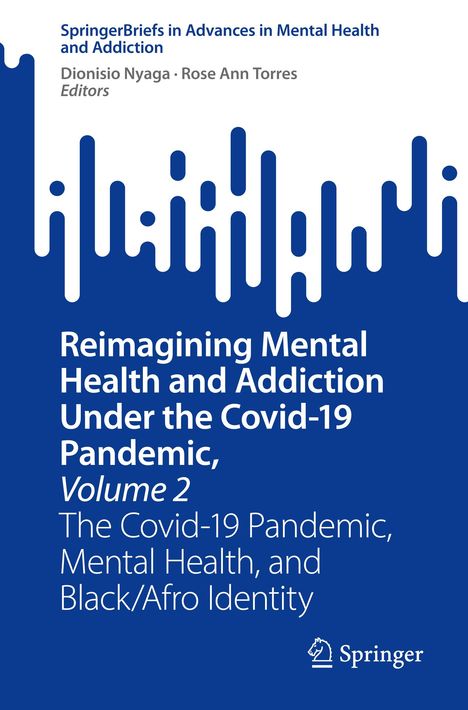Reimagining Mental Health and Addiction Under the Covid-19 Pandemic, Volume 2, Kartoniert / Broschiert
Reimagining Mental Health and Addiction Under the Covid-19 Pandemic, Volume 2
- The Covid-19 Pandemic, Mental Health, and Black/Afro Identity
(soweit verfügbar beim Lieferanten)
- Herausgeber:
- Rose Ann Torres, Dionisio Nyaga
- Verlag:
- Springer Nature Switzerland, 07/2024
- Einband:
- Kartoniert / Broschiert, Paperback
- Sprache:
- Englisch
- ISBN-13:
- 9783031583728
- Artikelnummer:
- 11910159
- Umfang:
- 60 Seiten
- Nummer der Auflage:
- 2024
- Ausgabe:
- 2024
- Gewicht:
- 108 g
- Maße:
- 235 x 155 mm
- Stärke:
- 4 mm
- Erscheinungstermin:
- 3.7.2024
- Hinweis
-
Achtung: Artikel ist nicht in deutscher Sprache!
Klappentext
This edited collection is a follow-up to Algoma University's inaugural conference on mental health and addiction held at the Brampton campus in Ontario, Canada. We live in a society where many marginalized communities continue to bear a historically disproportionate burden on their psychological, mental, and economic well-being, especially under the Covid-19 pandemic. Covid-19 has had a continuing impact on marginalized and racialized communities at all levels. We are now witnessing the compounded effects in the form of a worsening mental health and addiction crisis and its subsequent impact on children's education, service delivery, and overall psychosocial well-being.
Covid-19 has widened the gap and increased poverty disparities between high-income and low-income individuals. Furthermore, it has affected the psychosocial resilience of people. As communities of scholars, practitioners, and researchers, we have a responsibility to address these existential issues in ways that are ethical and transformative. This type of engagement should help mitigate the consequences of the pandemic in an intersectional manner. These conversations should assist us in understanding and addressing the trauma and suffering that marginalized communities and individuals continue to endure. Together, we can work to find answers to mental health and addiction challenges, while valuing people's histories and realities within this intersectional engagement.
This book aims to redefine psychiatric discourse in the age of the pandemic and encourage us to imagine how the world can be reformed in ways that are both ethical and political. It has the potential to shed light on the values and realities of communities in discussions of medical sociology, particularly concerning the impact of Covid-19 on marginalized communities.
This book is structured into three volumes. Volume one delves into the repercussions of the COVID-19 pandemic on the mental health of various ethnic groups. Volume two specifically addresses the impact of the pandemic on the mental health of Afro-Black individuals. Volume three explores the connections between the COVID-19 pandemic, psychological well-being, and colonialism.


